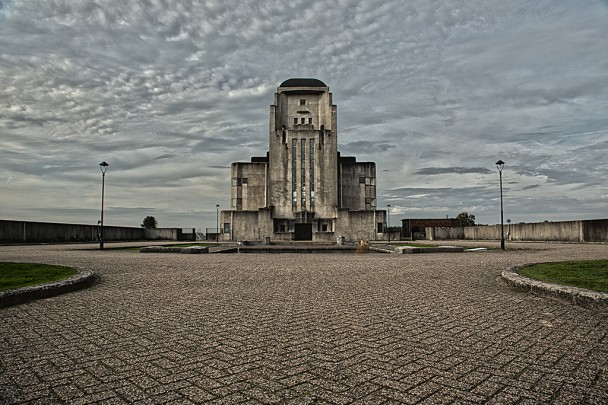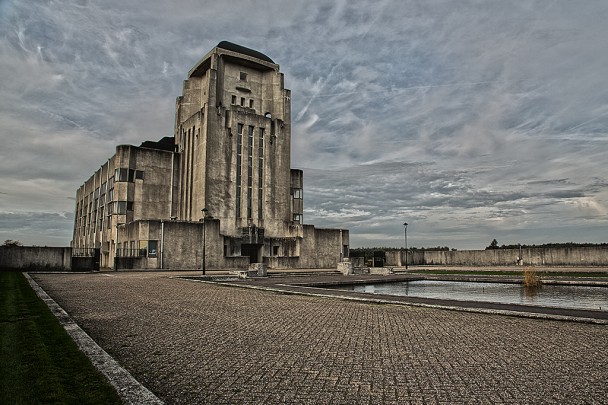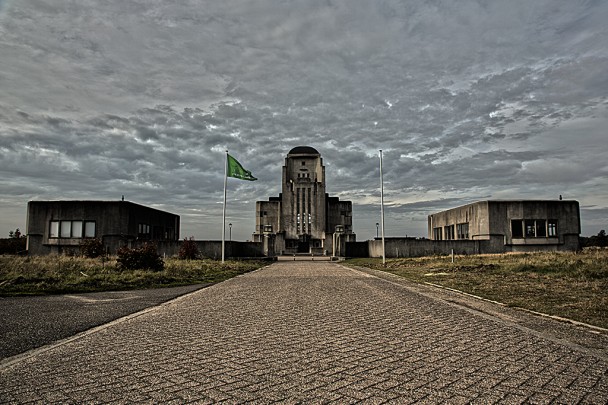2013-10-20. Today we visited “Radio Kootwijk” which is a small town in the Dutch municipality of Apeldoorn, The Netherlands. It is situated in a heather- and forest-rich territory in the Veluwe region, east of the sandhills of the Kootwijkerzand and the town of Kootwijk. Radio Kootwijk lost its position as main overseas wireless connection, but anno 2013 the building(s) are being used for exhibitions and meetings. For a photographer like me the place is awesome. The first image i captured when we arrived was:

We decided to walk around the building a bit and i captured some more images, but somehow i didn’t succeed to capture those outstanding images i had in mind. When we were in front of the building i decided to give it another shot. This time from another angle:

In the mean time the site got crowdier and we decided it’s time to go. In the distance we saw a group of people walking towards us. I was hoping to capture just one more image of the complex. Quickly i had setup my tripod and camera, arranged the preferred settings and managed to capture the last image. This is an overview of Radio Kootwijk’s “Building A”:

Roundup:
Soon more information
General Information:
Radio Kootwijk is a small town in the Dutch municipality of Apeldoorn, with approximately 120 inhabitants (in 2006). It is situated in a heather- and forest-rich territory in the Veluwe region, east of the sandhills of the Kootwijkerzand and the town of Kootwijk.
The housing accommodations of Radio Kootwijk arose as a result of the building of a shortwave transmitter site with the same name, starting in 1918. The transmitters played an important role in the 20th century as a communication facility between the Netherlands and its then colony of Dutch East Indies. In 1923 Dutch PTT started trans-oceanic telegraphy using a longwave transmitter (a 400KW high frequency alternator) from the German Telefunken company under the callsign PCG, in the 24 kHz and 48 kHz. By 1925 the longwave transmitter was changed by a shortwave tube based, electronic transmitter which had a much better performance due to the better propagation of shortwaves. With this new technology, in 1928 a radio-telephonic connection was established. At the end of World War II, the German occupying forces blew up the transmitter. Afterward some of the radio towers were rebuilt. Due to the development of new technologies like satellite communication, Radio Kootwijk lost its position as main overseas wireless connection point of the Netherlands. In 1980, the last transmission mast was blown up. In 2004 the park lost its last transmitter functions, and was transferred from the KPN company (successor to PTT) to the State Forestry Commission, which started attracting new buyers. The main building of the former transmitter park, designed by Dutch architect Julius Maria Luthmann and named ‘Building A’, ‘The Cathedral’ or sometimes ‘The Sphynx’, was officially appointed as a monument. It is used as venue and scenery for several cultural events and productions, including the American film Mindhunters in 2004.
Source: Wikipedia
![]()
Comments